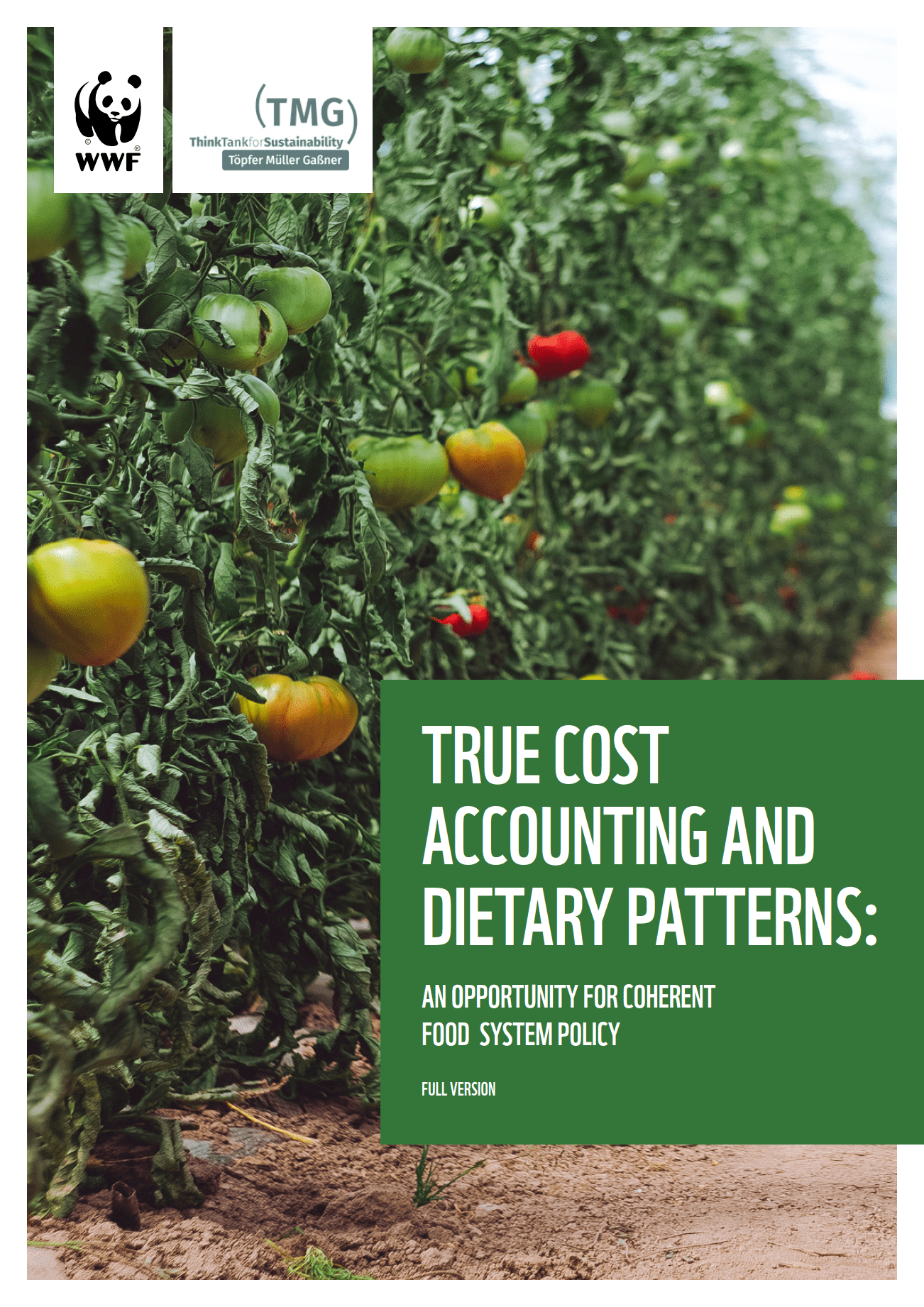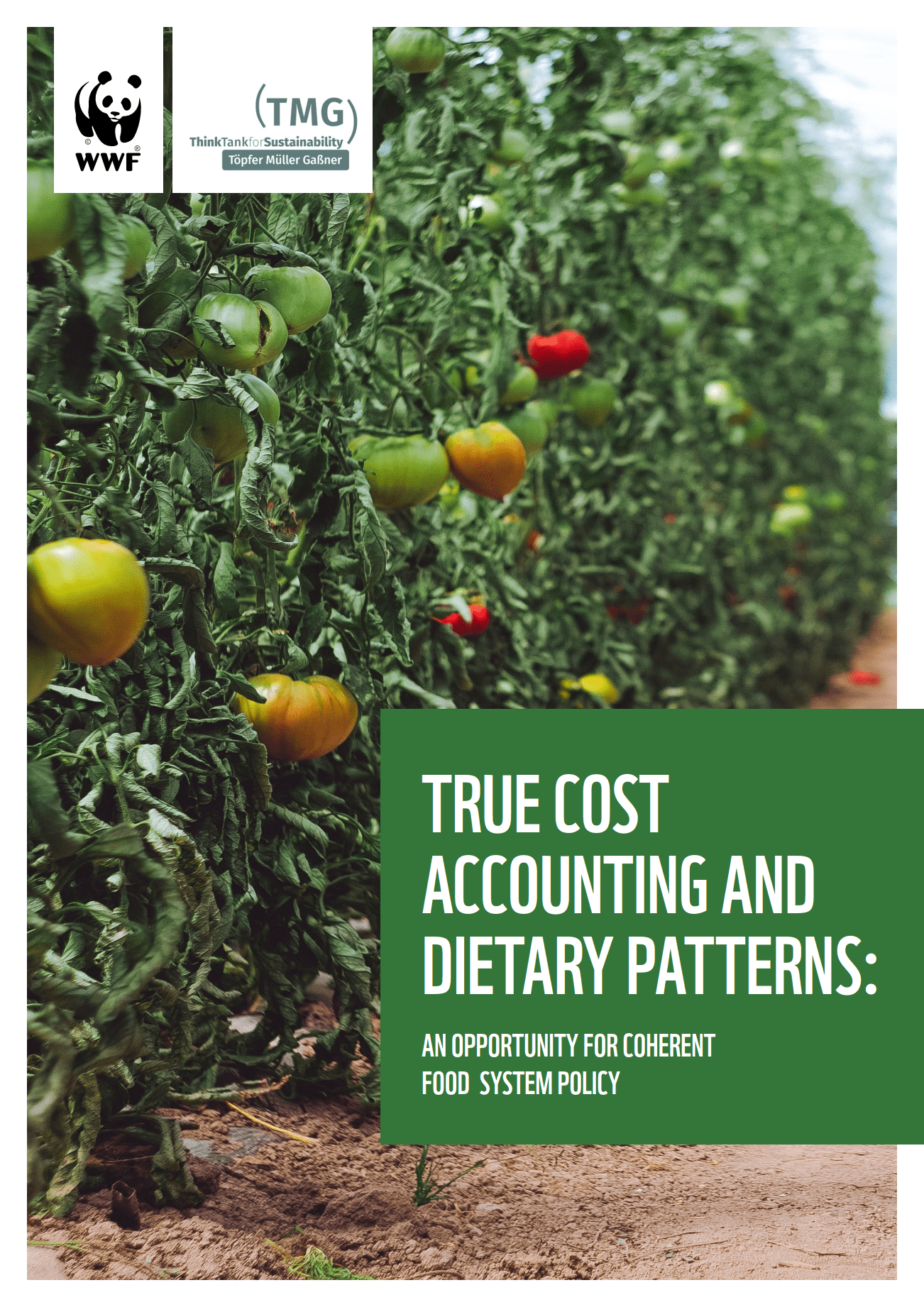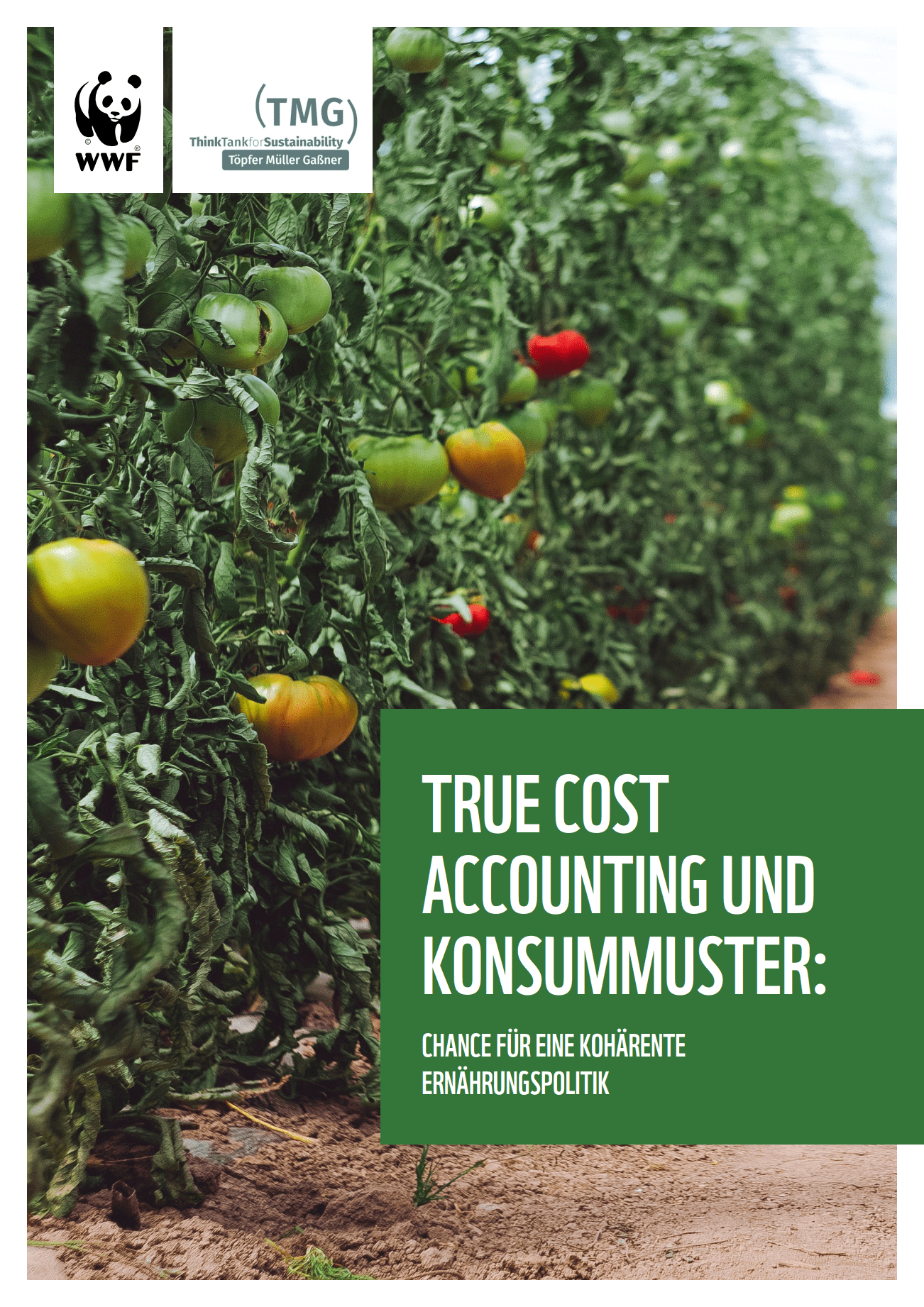the true costs of food
This video explains the need for True Cost Accounting. © WWF-Germany
The Need For True Cost Accounting
The prices usually do not reflect all external effects that food production (and consumption) entails: environmental impacts (such as land degradation, water pollution, destruction of ecosystems, biodiversity loss, resource exploitation), climate impacts (e.g., GHG emissions caused by conversion) and social impacts (human dietary health, labor conditions, child labor, workers’ health). Globally, all food consumed has a market value of USD9 trillion, but external costs to the environment and society, for instance through healthcare, are estimated to be more than double, at USD19.8 trillion. This means that food is roughly a third of the cost it would be if these externalities were included in food prices. External costs are made up of USD7 trillion in environmental costs, USD11 trillion in costs to human life and USD1 trillion in economic costs. True Cost Accounting (TCA) can be a powerful tool to set up sustainable food systems:
- governments can only develop sensible food system policies, strategies, and framing conditions if they have a full understanding of all the “side effects” of their decisions
- businesses will gain full knowledge of all the costs involved in their products along the entire value chain, they will get the means to become fully transparent and communicate openly to customers, reaping the benefits of an improved reputation
- producers will be rewarded for adopting nature-positive production, TCA can help them, and food system workers achieve living wages, improved social and health conditions (fair trading schemes, working conditions) and food security
- consumers will be better equipped to make informed consumption choices; they can rely on transparent pricing structures and in the best case reliable food labeling
Implementing TCA will be an important step in ensuring that we have healthy, sustainable, and inclusive food systems.
The price of food needs to incorporate the sum of all costs, including those associated with nature, climate, and people. Not including these costs directly contributes to the climate and nature crises and makes it difficult to achieve food and nutrition security.
Webinar: The True Cost of Food: from shifting markets to informing policy confirmation
In March 2022, Future Food Together organized a webinar jointly with the European Policy Office and the Food Practice under the Forum for the Future of Agriculture. Representatives from academia, politics (EU) and the private sector participated as panelists.
International Climate Initiative
Future Food Together is part of the International Climate Initiative (IKI), which is supported by Germany’s Federal Ministry for the Environment, Nature and Conservation and Nuclear Safety (BMU). IKI operates within the framework of the United Nations Framework Convention on Climate Change and the Convention on Biological Diversity, financing climate change mitigation and biodiversity conservation in developing, emerging and transitioning countries.



